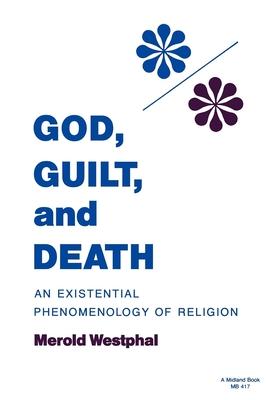" . . . a profoundly stimulating and satisfying piece of philosophy. . . . It is a book from which one really can learn something worthwhile." --Idealistic Studies
" . . . exceptionally well-written philosophy of religion . . . " --Mentalities
" . . . a most impressive phenomenology of religion . . . a splendid achievement . . . " --The Reformed Theological Review
" . . . challenging to scholars . . . interesting to general audiences." --International Journal for Philosophy of Religion
" . . . equal in clarity of thought and comprehensiveness of scope. . . . profoundly original." --The Reformed Journal
"Challenging and thought-provoking, this makes a fine . . . textbook in the philosophy of religion." --Religious Studies Review
" . . . its virtues as a textbook in phenomenology or philosophy of religion are extraordinary." --Faith and Philosophy
Examples from the writings of Kierkegaard, Freud, Heidegger, Dostoyevsky, Nietzsche, and Tolstoi illuminate Westphal's thesis that guilt and death are the central problems of human existence.

God, Guilt, and Death: An Existential Phenomenology of Religion
" . . . a profoundly stimulating and satisfying piece of philosophy. . . . It is a book from which one really can learn something worthwhile." --Idealistic Studies
" . . . exceptionally well-written philosophy of religion . . . " --Mentalities
" . . . a most impressive phenomenology of religion . . . a splendid achievement . . . " --The Reformed Theological Review
" . . . challenging to scholars . . . interesting to general audiences." --International Journal for Philosophy of Religion
" . . . equal in clarity of thought and comprehensiveness of scope. . . . profoundly original." --The Reformed Journal
"Challenging and thought-provoking, this makes a fine . . . textbook in the philosophy of religion." --Religious Studies Review
" . . . its virtues as a textbook in phenomenology or philosophy of religion are extraordinary." --Faith and Philosophy
Examples from the writings of Kierkegaard, Freud, Heidegger, Dostoyevsky, Nietzsche, and Tolstoi illuminate Westphal's thesis that guilt and death are the central problems of human existence.